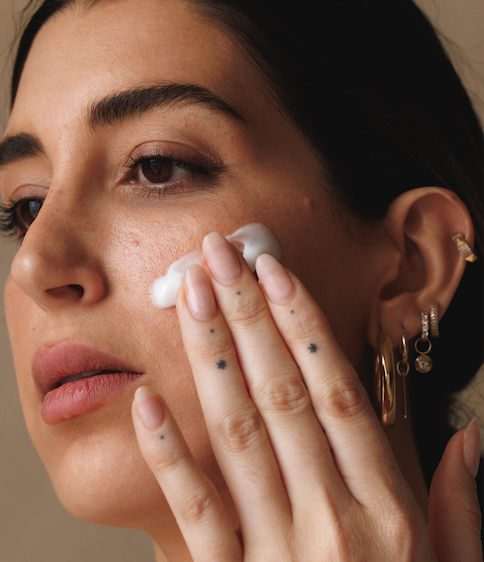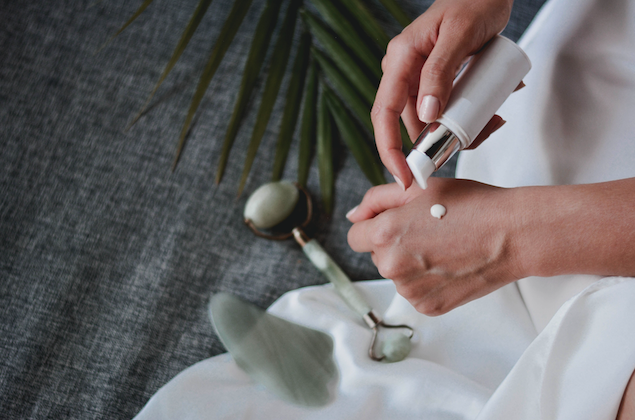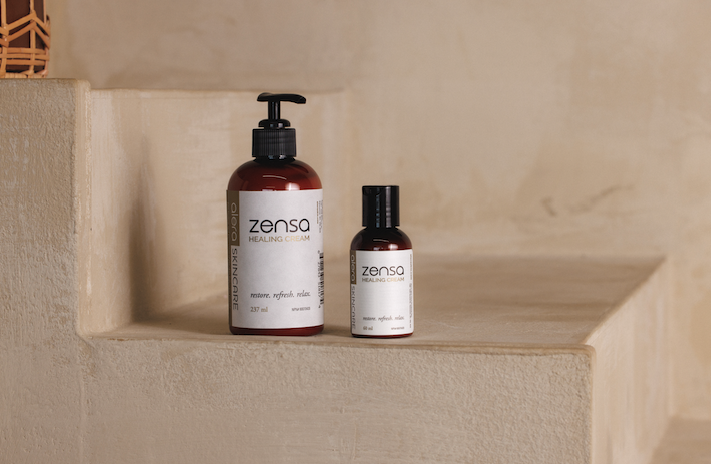Tretinoin vs. Retinol: What Is the Difference and Which Is Better for Your Skin?
Tretinoin vs. Retinol: What Is the Difference and Which Is Better for Your Skin?
The skincare boom of the past decade has resulted in the release of thousands of products on the market. If you have ever been down the skincare aisle of your local drugstore, you are well aware of that. Amid the frenzy, two popular ingredients have gained significant attention for their anti-aging and acne-fighting properties: tretinoin and retinol. Tretinoin and retinol are two commonly used types of retinoids that are often compared. But what exactly are these compounds, and what sets them apart from each other? And most importantly, which one is the better choice for your skin?

Overview
Here is the scoop: Both compounds are derivatives of vitamin A. Tretinoin, also known as retinoic acid, is a synthetic, prescription-strength form of vitamin A that has been used for decades to treat acne, fine lines and wrinkles. Alternatively, retinol can be found over the counter as a natural, less potent form of vitamin A. It is typically included in anti-aging creams, lotions and serums to help smooth out skin texture, minimize fine lines and boost collagen production. Both compounds have long been hailed as effective solutions for improving the appearance and health of the skin. However, understanding the differences between these two substances is crucial in determining which one is better suited to your skin's unique needs. First, let us take a closer look at what these retinoids do.
What Do Retinol and Tretinoin Creams Do for Your Skin?
-
Stimulation of Collagen Production: Retinoids stimulate the production of collagen (a protein responsible for maintaining skin elasticity and firmness) by activating fibroblasts (the cells responsible for collagen synthesis). By increasing collagen production, retinoids improve the skin's structure, reduce the appearance of wrinkles and promote a smoother complexion.
-
Acceleration of Cell Turnover: Alongside collagen production, retinoids speed up the process of cell turnover by enhancing the shedding of dead skin cells and promoting the generation of new cells. High cell turnover reveals fresher, more youthful skin.
-
Acne Treatment: One of the most well-known benefits of retinoids is their ability to treat acne. By unclogging pores, reducing inflammation and normalizing the skin's shedding process, retinoids promote the expulsion of existing comedones (clogged pores) and further prevent the formation of comedones, leading to a reduction in acne lesions and improved skin texture.
-
Enhanced Skin Hydration: Retinoids support the skin's natural moisture barrier by stimulating the production of hyaluronic acid, a substance that helps retain moisture. By boosting hyaluronic acid synthesis, retinoids improve skin hydration levels, making the skin appear plumper and more supple.
-
Antioxidant Protection: Retinoids exhibit antioxidant properties, which help protect the skin against damage caused by free radicals. Free radicals are unstable molecules generated by environmental stressors, such as UV radiation and pollution. By neutralizing these harmful molecules, retinoids help minimize oxidative stress and the resulting premature aging effects on the skin.
-
Pigmentation Regulation: Retinoids can help address uneven skin tone and hyperpigmentation. They inhibit the production of melanin, the pigment responsible for skin coloration. By reducing excess melanin production, retinoids help fade dark spots, sunspots and post-inflammatory hyperpigmentation, resulting in a more even and radiant complexion.

What’s the Difference Between Retinol and Tretinoin?
Tretinoin is more potent and biologically active compared to retinol, allowing for faster and more noticeable results. Being a prescription medication, tretinoin is subjected to rigorous quality control and regulation, ensuring a higher level of safety and reliability.
As retinol is an over-the-counter solution, it is worth noting that it is milder than tretinoin, making it more suitable for individuals with sensitive skin or those new to retinoids. However, its effectiveness can vary depending on the concentration, formulation and individual response.
Side Effects of Retinol and Tretinoin
For every game-changing solution, there comes a catch. Retinol and particularly tretinoin are notorious for causing skin irritation, dryness, redness and peeling, especially during the initial stages of use. Because retinoids work to reveal new layers of skin, they also make you more sensitive to the sun. Regardless of which retinoid you choose, be careful not to use it more often than directed, and always be sure to wear SPF to keep your skin protected.

Retinoids can be hard on the skin, so it is smart to use them in conjunction with complementary skin soothers. Products like Zensa Healing Cream, which contains medicinal-grade calendula and grapefruit oils, can help reduce inflammation using natural ingredients. Here is everything to know about Zensa Healing Cream.
Which Is Better: Tretinoin or Retinol?
While both retinoids are very safe to use for most people, determining which option is better for your skin depends on several factors, including your skin's condition and tolerance, your goals and your budget.
Your Skin
If you have severe acne or require significant skin rejuvenation, tretinoin may be the more suitable choice. Its high potency and proven clinical efficacy make it a powerhouse for addressing stubborn acne, wrinkles and pigmentation issues. However, individuals with sensitive skin should exercise caution and start with a lower concentration to minimize the risk of irritation.
For those who have sensitive skin, retinol offers a gentler alternative. Its widespread availability and varied formulations provide more options for customization and gradual adjustment to retinoids. While the results may take longer to manifest, retinol still offers noticeable improvements overall.
Before incorporating a retinol serum or tretinoin cream into your routine, consult a dermatologist for personalized recommendations based on your unique situation.
Your Budget
The price difference between tretinoin and retinol can be significant. Tretinoin, as a prescription medication, tends to be more expensive compared to retinol, which is available over the counter. The cost of tretinoin can vary depending on the brand, concentration, and quantity prescribed, and it may require additional expenses such as a consultation with a doctor. In contrast, retinol offers a wider range of price points, from affordable options to higher-end formulations, making it more accessible to different budgets.

The Bottom Line
In conclusion, your decision between tretinoin and retinol ultimately depends on your skincare goals. With its prescription strength, tretinoin is more effective in treating acne and reversing signs of aging.
However, the side effects may outweigh the benefits for some individuals. Retinol, on the other hand, is a milder option that is widely available over the counter and can still provide significant improvements to your skin's texture and appearance.
Of course, it is always recommended to consult with a dermatologist before starting any new skincare routine. Whether you choose tretinoin or retinol, consistency is key to achieving long-term results.
In the end, whether you opt for the potency of tretinoin or the accessibility of retinol, incorporating a vitamin A derivative into your skincare routine can help unlock the potential for healthier, rejuvenated skin.
